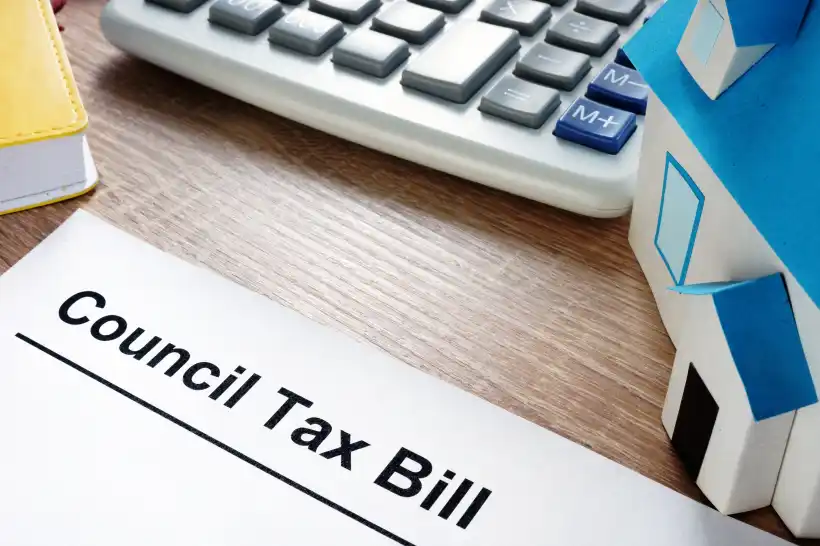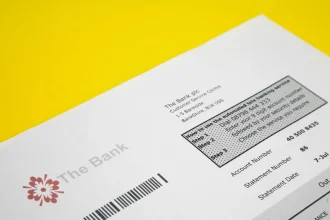When you come to the United Kingdom, many students will come across a new term – Council Tax, which went into effect in 1993 and refers to a certain amount of tax that the three regions of England, Scotland and Wales charge on national property to ensure that the local government provides the relevant services. Council Tax is a tax charged to the general public in the UK for constructing public places and facilities such as schools and street lighting. Generally, all properties are subject to this tax, but some properties and some people don’t have to pay it. So how much does Council Tax cost? Why do we have to pay for it? Can we not pay for it? What happens if we don’t? This blog will take you through the process.
How is the tax calculated?
The Valuation Office Agency (VOA) categorises all homes. Each category of home will be charged a different tax. The local authorities keep a list of all the categories of houses in the area, which is called the Valuation List, and you can check which Band the house belongs to and how much you should pay by entering the postcode of your house on the official website of the UK government, Gov.uk.
What kind of house won't be taxed?
Some houses are exempt from taxes for a period of time, some for six months and some for an indefinite period. Houses that can be tax-exempt include:
- foreclosed houses;
- unoccupied houses;
- where the occupants are under 18 years of age;
- all the occupants of the house have a serious mental illness;
- all house occupants are students (if some are non-students, students under the same roof will also be liable for tax).
If you think you should avoid paying taxes where you live, visit your local Citizens Advice Bureau for more information. Also, you can contact your nearest CAB by going to the official website.
Who need to pay Council Tax?
From a legal point of view, the person liable to pay Council Tax is called a Liable Person, and minors under 18 do not fall into the category of Liable Person.
Generally, the occupier of the property is defined as a liable person, but sometimes, the owner is responsible for paying the Council Tax. When renting a property in the UK, the person whose name is on the contract is the one who pays the house tax.
The asset holder should be the person who pays Council Tax when the following situations occur:
- the property is occupied by different households, for example, several families living under the same roof and paying separate rents;
- the household is under 18 years of age
- the household is an asylum seeker (e.g. applying for political asylum, etc.);
- the household is only living temporarily, and their main place of residence is elsewhere;
- the property is a home for the elderly, a hospital, a youth hostel or a women’s refuge.
If only one person is living in the household, the sole occupant becomes a Liable Person; however, where there is more than one person, the Hierarchy of Liability is required to determine who the taxpayer is. The person at, or near, the top of the hierarchy will be the taxpayer; however, if two people are in the top hierarchy simultaneously, they will both be liable to pay tax.
However, even if you have to pay the tax, in some cases, you are not required to pay the total amount. Only if there are two or more adult occupants in the house are you required to pay the full amount of the tax. If there is only one adult occupant in the house, or if only one occupant is over 18, the occupant can apply for a Discount.
How do full-time students apply for Council Tax exemption?
As a full-time student in the UK, you can be exempt from Council Tax by presenting a Student Letter, which you can get from your university’s Student Service. Some universities can provide a Council Tax Exemption Form, which can be filled out and stamped by the university and sent out, which is even more convenient.
Gov.uk states that a full-time student must fulfil two conditions:
- the duration of the course is not less than 1 year;
- 21 hours or more of the class per week.
These two conditions must be clearly stated in the student letter. Once the letter has been opened, send it to your local council tax office (the address of the council office will be indicated when you receive the letter from Council Tax).
Finally, this is a brief introduction to Council Tax. For more detailed information about Council Tax, you can go to Gov.uk. For more general information on living in the UK, please read our other blogs.









